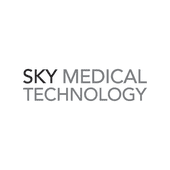
Why we cannot abandon innovation beyond COVID
One of the few silver linings to come from the pandemic has been the rapid adoption of innovation in healthcare. The race to develop vaccines in less than one year is a prime example - taking anywhere between 10 and 15 years in normal circumstances. Other technologies such as telemedicine for virtual appointments, and Virtual Reality (VR) or Augmented Reality (AR) that provides lifelike remote training for medical staff, have broken through with great pace.
The healthcare industry has needed this boost and the pandemic has acted as a powerful impetus for change. Recent research from McKinsey shows two of the industries surveyed, who have increased their focus on innovation are pharmaceutical and medical devices. But why is this so important and will it continue post-COVID?
Rebalancing the scales
Innovation in medical technology (MedTech) is uniquely important to the future of healthcare for two fundamental reasons. On an economic level, the pandemic costs led to a £5.1bn deficit for the NHS in England in the first four months of the financial year, compared with the pre-pandemic budget. Some of the key contributors include extending the workforce to meet the healthcare demand, absences from sickness, providing extra bed capacity, and, at the beginning of the lockdown, higher costs of prescribing. Technology has not only helped continue vital services digitally through the pandemic, it also offers the possibility to make healthcare services more efficient and cost effective.
The true potential of MedTech goes beyond the financial impact though. There are massive societal changes which put a strain on healthcare systems globally. An ageing population means more people using healthcare services, but less people in employment and paying taxes to support them, at a time when medical costs are increasing exponentially. This has led to a healthcare system struggling to cope with demand - even before COVID-19.
Technology is increasingly being used to rebalance the scales, reducing the financial pressure on the NHS while enhancing patient outcomes.
Regulatory roadblocks
Before medical technologies can be introduced into healthcare settings to make a positive difference to patient outcomes, companies have to - quite rightly - gather the evidence that products are safe and effective. Bringing a medical device to market requires rigorous testing, regulatory approvals, clinical studies, and healthcare professionals willing to support and champion the product - all of which requires money, time and commitment.
Critical to medical device adoption is the need to meet the regulatory requirements of different health services around the world and the need to generate positive patient data through a programme of clinical studies.
There is no doubt regulation is necessary, and bodies such as National Institute for Health and Care Excellence (NICE) and the US Food & Drug Administration (FDA) must be commended for ensuring innovations are safe. However, if global healthcare systems are to continue adopting innovation beyond the pandemic, we need to strike a balance between regulation and innovation.
The flexible response of regulatory bodies during the pandemic - two examples shared here in the UK and US - offers great scope for the industry to shape the dialogue for how the sector will be regulated in future. Importantly, the industry can now point to the FDA’s granting of more than 250 emergency use authorisations, including medical devices, PPE and ventilators, in the first six months of the pandemic. And partnership is going to become an increasingly vital part of that conversation.
Collaboration in innovation
To have a tangible impact on healthcare delivery, clinical and health economic data and product benefits must be clear for clinicians to see, and MedTech companies must be sensitive to the process through which innovation is adopted - as part of this, the need to support all aspects of product adoption, from user training to information manuals and product videos.
Often MedTech companies want to be seen as 'disruptive' in their field. But MedTech should be anything but disruptive. A new technology should ideally fit as seamlessly as possible into existing workflows, not delay or interrupt them. A consultant surgeon may love a new technology, but if it adds too much work for front line staff, an adoption hurdle will loom. There are clever, evidence-based, fundable, well published innovations out there but to achieve adoption they also need to be straightforward to integrate.
Equally, the burden of adoption cannot continue to fall on the shoulders of front-line staff who, on top of their full-time jobs, and in a challenging environment, can sometime feel they stand alone in their willingness to give up additional time to pursue innovation for better patient outcomes.
Carrying the torch
New technologies and innovations have the potential to improve patient outcomes, reduce the strain on healthcare professionals and - ultimately - save healthcare systems money across the globe. The pandemic has been pivotal to an infrastructure change that has assisted healthcare professionals to make the switch to innovation-enabled care. This momentum must be maintained.
Healthcare systems do not have an innovation problem; they have a replication problem: successful projects and changes to clinical practice have in the past rarely been reproduced elsewhere in the system. The pandemic has changed this, allowing innovation to break through with great pace.


